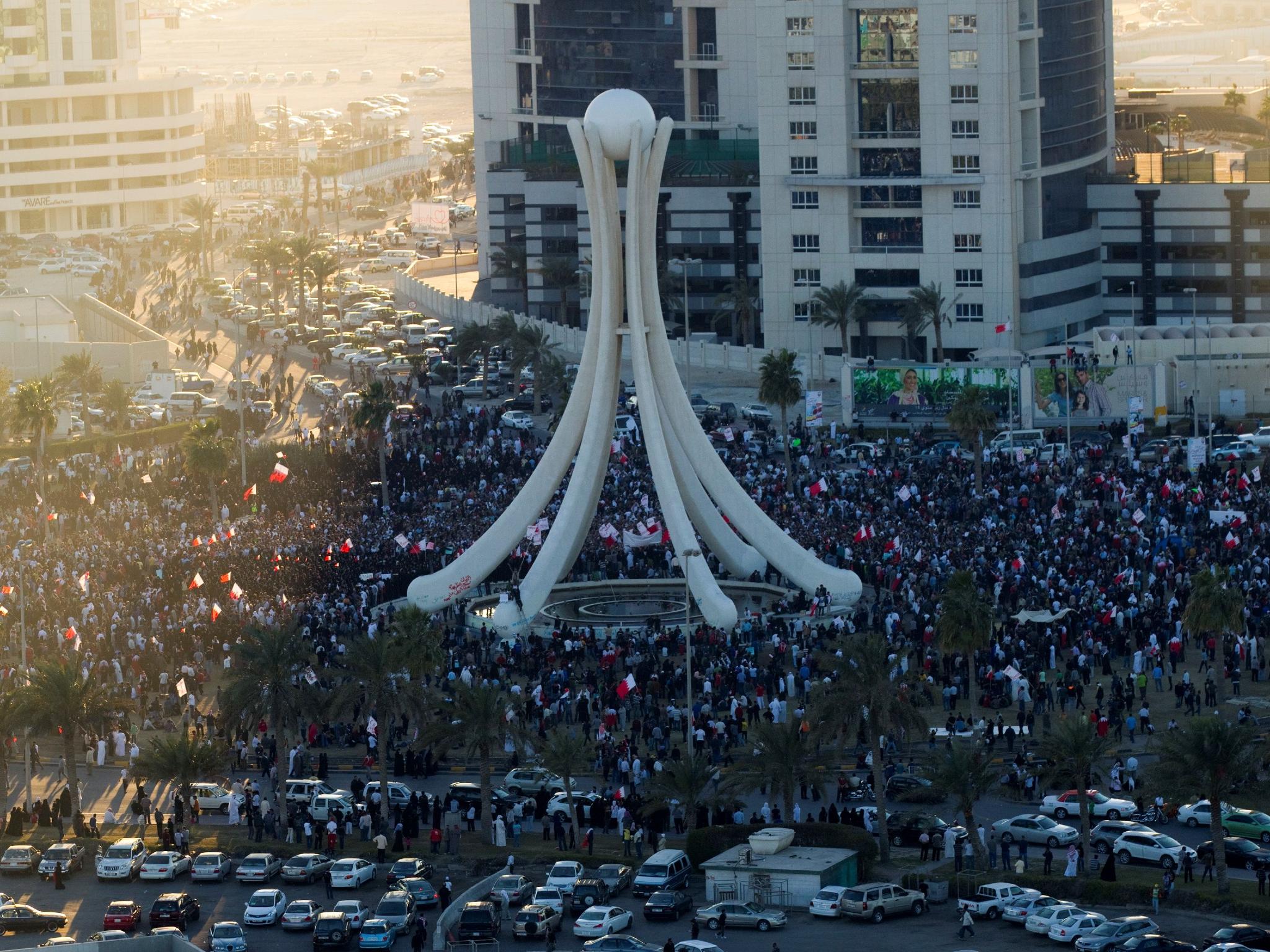A decade on from the uprising in Bahrain, the UK needs to look at its relationship with the kingdom
The British government is sure progress is being made over human rights – but activists tell a different story, writes Bel Trew


Your support helps us to tell the story
From reproductive rights to climate change to Big Tech, The Independent is on the ground when the story is developing. Whether it's investigating the financials of Elon Musk's pro-Trump PAC or producing our latest documentary, 'The A Word', which shines a light on the American women fighting for reproductive rights, we know how important it is to parse out the facts from the messaging.
At such a critical moment in US history, we need reporters on the ground. Your donation allows us to keep sending journalists to speak to both sides of the story.
The Independent is trusted by Americans across the entire political spectrum. And unlike many other quality news outlets, we choose not to lock Americans out of our reporting and analysis with paywalls. We believe quality journalism should be available to everyone, paid for by those who can afford it.
Your support makes all the difference.A decade ago today, as pro-democracy uprisings raged across the Middle East, tens of thousands of protesters in Bahrain began their own rallies.
Like many of the region’s revolutions, the protests were met with a bloody crackdown, according to those present (it’s an allegation the Bahrain government denies) – and 10 years later, many of the key voices of Bahrain’s revolt are behind bars, under travel bans or in exile.
However, one difference is that over the last decade the UK has poured millions of pounds of taxpayer money into Bahrain in a bid to improve its human rights record. The UK has repeatedly said this £6.5m of technical assistance is having a positive impact on human rights.
But leading rights groups, Bahraini activists and British parliamentarians say this policy has spectacularly failed.
In the words of a new report by Bahraini rights group Bahrain Institute for Rights & Democracy (Bird), a decade on from the uprising, Bahrain has “regressed in almost every area of human rights”.
In a letter due to be sent to the foreign secretary, Dominic Raab, on Monday, 11 British MPs have expressed their serious concern regarding “the failure of UK reform efforts to foster genuine change in the country”.
The letter, which was shared with The Independent, urges the government to suspend this assistance until the death sentences of torture victims have been quashed. Bahraini activists agree.
Najah Yusuf, an activist and former civil servant, spent more than two years behind bars after she was convicted under Bahrain’s counterterrorism laws. She says she was subjected to sexual assault and torture in the Muharraq security complex.
The Bahraini authorities have repeatedly denied the use of torture and dismissed reports of abuse as “false and baseless”.
Yusuf was eventually released by royal pardon in 2019 and a UN working group declared her “arbitrarily detained”, calling for her abusers to be prosecuted. Now she says her 16-year-old son is facing more than 20 years in prison on charges that rights groups say are dubious.
“The Bahrain we dreamed of in 2011 never came to pass and Britain shares the blame for this,” she says.
Ebtisam al-Saegh, a prominent human rights defender, says in 2017 she was also detained, tortured and sexually assaulted in the Muharraq security complex. She was re-arrested when she spoke out and now lives under a travel ban.
“In 2019 I met with foreign office officials in London and told them my story,” she says. “So when ministers in the UK government say that the human rights situation in Bahrain is improving with Britain’s help, they must know they are not speaking the truth.”
According to Reprieve, during the last decade – despite the UK’s million-pound technical assistance to Bahrain’s justice and security sectors – the use of the death penalty in Bahrain has soared by more than 600 per cent. Between 2011 and 2021, at least 51 people have been sentenced to death, compared with reports of seven death sentences in the decade before.
The number of people on death row facing imminent execution in Bahrain has increased from one person at the end of 2010 to at least 26 in 2021, according to their figures.
One of the most harrowing examples is the case of Mohammed Ramadhan, an airport policeman and Husain Moosa, a hotel driver, who participated in the 2011 protests and in 2014 were arrested on charges of killing a police officer in a bomb attack.
The pair have said they were tortured to confess to murder. But the allegations of torture were investigated and then effectively thrown out by two Bahraini security bodies – Bahrain’s Special Investigations Unit (SIU) and Ombudsman – that have received training from the UK. This allowed the case against them to proceed.
The probe by the two bodies was denounced by independent experts as “seriously flawed” because it overlooked clear medical evidence of abuse. The issue was raised last summer in an open letter by 46 MPs and peers, from across most of the UK’s major parties, calling on the government to urgently intervene.
According to Human Rights Watch, the two men remain at imminent threat of execution.
Bird also highlighted the issue of people being stripped of their citizenship. The group said that in 2011 a peak number of 990 people were deprived of citizenship, of whom 292 remain denaturalised, including Bird’s director, Sayed Ahmed Alwadaei.
Both Reprieve and Bird also point to large weapons deals between Britain and Bahrain. The UK has exported more than £115m in arms to Bahrain since the uprising, according to the Campaign Against Arms Trade – with Bahrain also a member of the Saudi Arabian-led coalition involved in the devastating war in Yemen.
The UK has repeatedly defended its support.
In October, the Middle East minister, James Cleverly, said during a debate on the funds: “The UK is confident and it is evident that we are having a significant positive impact on human rights in the region because of the funds.”
In a written response to a query about Ramadhan and Moosa, he said that while the UK remains deeply concerned about the death sentences, “we continue to believe that Bahrain is taking steps in the right direction to improve its record on justice and security issues”.
This echoed comments made a few months before by Lord Ahmad of Wimbledon when he was minister of state for human rights. Like Cleverly, he said he remained “deeply concerned” about the death sentences.
But remaining concerned is not good enough, and neither is promising reforms that haven’t happened 10 years on, rights groups say.
“It takes some nerve for ministers to stand up in parliament and tell MPs that the taxpayer money they are spending on Bahrain is getting human rights results,” says Jeed Basyouni from Reprieve.
“If they would just listen to the growing numbers of torture victims and political prisoners, they would surely realise that all British funding is doing is whitewashing human rights abuses and that a fundamental change in approach is needed.”



Join our commenting forum
Join thought-provoking conversations, follow other Independent readers and see their replies
Comments